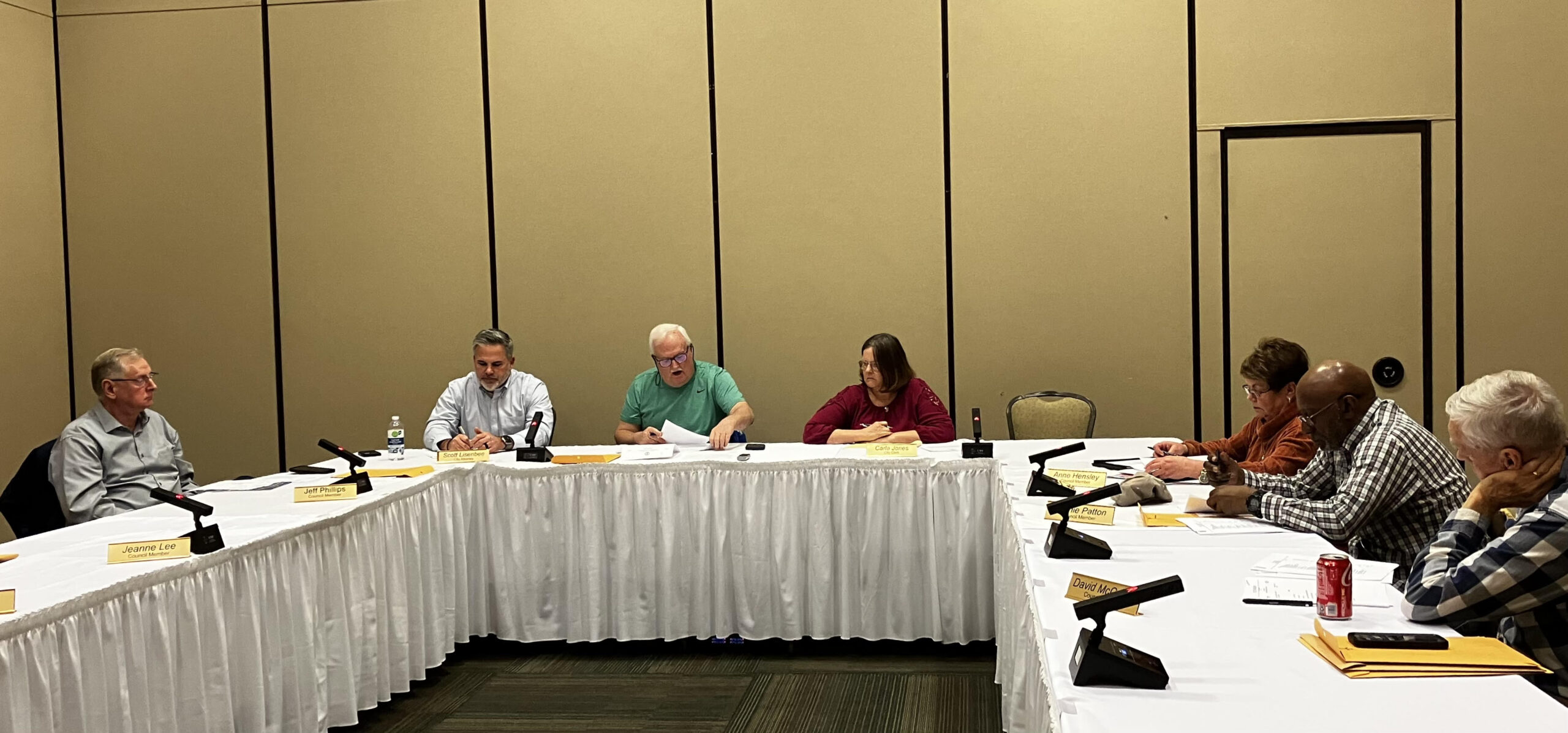Mental health court now operating in Harlan
Published 8:33 am Friday, June 13, 2025
|
Getting your Trinity Audio player ready...
|
A court focused on defendants with mental health conditions and a co-occurring disorder such as substance use disorder is now serving Harlan County, bridging the gap between courts and behavioral health services. The court began operating earlier this year.
Mental Health Court, structured similarly to Drug Court, is for defendants identified as high risk and high needs who have been charged with misdemeanors or felonies. Participants who complete the approximately two-year program may have their charges dismissed through diversion or be granted conditional discharge through probation.
“Mental Health Court gives the legal system an avenue to deal with a population that has been underserved and often seen in the court system in the past,” said Harlan County District Court Judge Timothy J. Jackson, who voluntarily serves as the local Mental Health Court judge. “Instead of avenues that oftentimes exacerbate – i.e. incarceration, their mental health issues – this program allows us to serve an underserved population with an open-minded approach to help heal an underlying mental issue.”
Trending
Defendants who choose to participate in Mental Health Court are required to meet with a case manager, participate in clinical services including therapy and take any necessary medications. Participants are subject to screenings to ensure they aren’t using illegal drugs.
Mental Health Court teams include law enforcement, prosecutors, defense attorneys and treatment providers.
Based on a recommendation from the Kentucky Judicial Commission on Mental Health, the Judicial Branch sought and received funding for 10 new Mental Health Courts from the Kentucky General Assembly in House Bill 264, the branch’s biennium budget for 2024-2026.
With this funding, Mental Health Courts have gone live or are scheduled to go live this year in the following judicial jurisdictions: Bourbon/Scott/Woodford, Christian, Clark/Madison, Floyd, Franklin, Harlan, Hopkins, McCracken, Perry and Pulaski. The Administrative Office of the Courts oversees Mental Health Courts in 15 jurisdictions (20 counties) through its Department of Specialty Courts, with the other jurisdictions being Daviess, Hardin, Jefferson, Johnson/Lawrence/Martin and Warren counties. The AOC financially supports the programs in all the counties except Johnson/Lawrence/Martin and Warren, where they are grant-funded.
Judges participated in community meetings with Kentucky Specialty Courts (AOC Department of Specialty Courts) and local partners including law enforcement and attorneys to plan for the Mental Health Courts.
“Our judges are so pleased that the General Assembly has provided the necessary funding for us to implement these programs, which are proven to reduce recidivism, incarceration and hospitalization of seriously mentally ill adults living in our communities,” said Jefferson District Court Judge Stephanie Pearce Burke, who serves on the Kentucky Judicial Commission on Mental Health Court Responses Workgroup and is president of the Kentucky District Judges Association.
Trending
“When we have the tools to properly address the underlying needs of these most fragile citizens, we not only improve outcomes for the individual, but we also lessen the burden on their families and the community.”
Behavioral Health Liaisons
To help support court efforts to foster a recovery-oriented system of care, the AOC has established eight regional behavioral health liaison positions to provide guidance and navigation services for potential Mental Health Court participants. The liaisons serve as key connections between the court system and community partners to improve access to necessary treatment and support services.
“Expanding Mental Health Courts and establishing behavioral health liaisons are critical steps toward a justice system that truly supports recovery for individuals facing mental health and substance use challenges,” said Court of Appeals Chief Judge Larry Thompson, who serves as vice chair of the Kentucky Judicial Commission on Mental Health. “These initiatives will equip our courts with the resources and expertise needed to divert individuals into treatment and support pathways, rather than incarceration, ultimately fostering healthier communities and a more compassionate approach to justice.”
Specialty Courts
The Department of Specialty Courts oversees the Drug Court, Veterans Treatment Court and Mental Health Court programs. Collectively referred to as Specialty Courts, these programs are similarly structured and supervised and have the same goal – to give participants the tools and support to overcome obstacles to recovery and make positive changes in their lives.
The programs provide oversight by a judge along with case management and treatment services. Drug testing may be part of an individual case plan. Specialty Courts help individuals charged with criminal offenses who are eligible for diversion and/or probation and are identified by screening tools as being high risk and high need.
The foundation of a successful Specialty Court program is its multidisciplinary team. The judge leads a team of Specialty Court staff, defense attorneys, prosecutors, treatment providers and law enforcement officers. Specialty Courts staff work with participants to create their individualized case plans, and staff monitor participants’ progress. Judges volunteer their time to serve with Specialty Courts programs.
Specialty Courts operate as part of the AOC, which pays for treatment, drug testing and case management. There is no cost to participants.
It takes a minimum of 18 months to complete a Specialty Courts program, depending on the level of services needed and a participant’s progress in completing case and treatment plans. Participants who successfully complete their program may have their charges dismissed through diversion or be granted conditional discharge through probation.
These programs offer substantial benefits to individuals and communities by reducing recidivism, cutting incarceration costs, decreasing medical costs, and improving child support and tax revenue as participants gain employment. In addition, the devastating cycle of generational criminal behavior and addiction is broken as participants become healthy, productive members of their communities.






